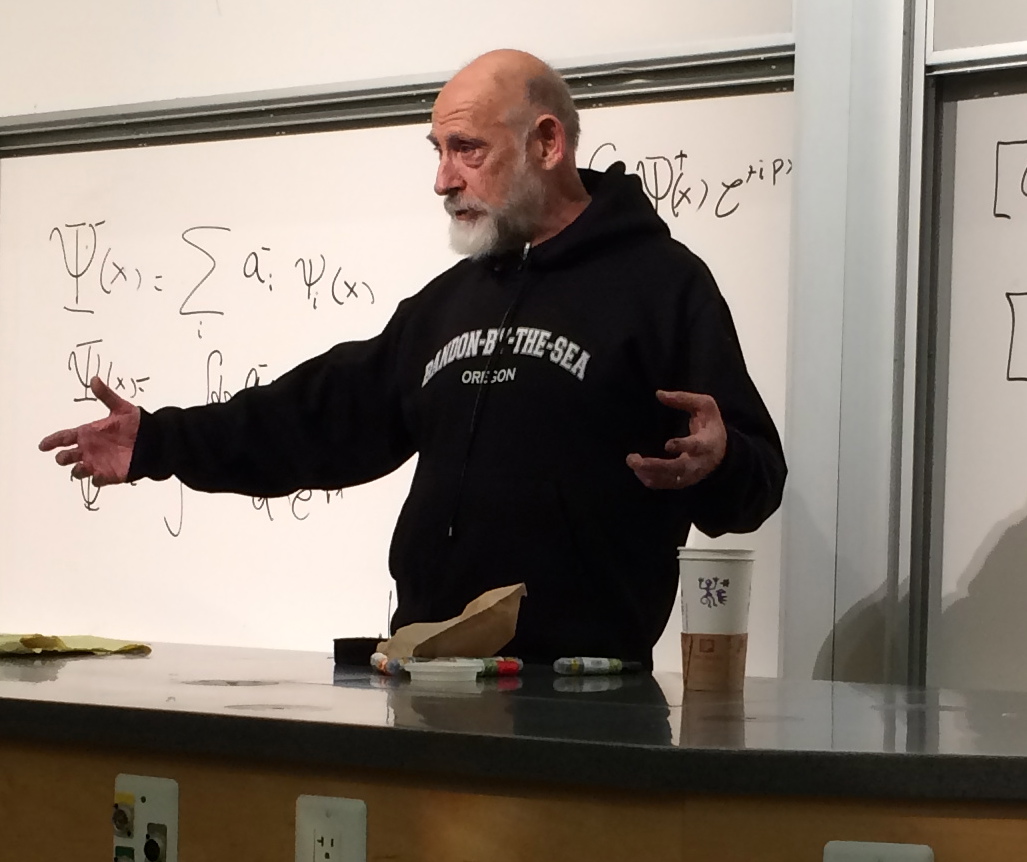A good review from The Economist (excerpted below). And also from most of the American military-political-industrial complex.
The Economist notes that writing polemical books warning of inadequacies in your country's military posture is far from new:
“Ghost Fleet” is an entertaining new entrant into this tradition. Peter Singer, who has thought about military matters at various Washington think-tanks, and August Cole, a former defence reporter for the Wall Street Journal, spin a story of a war between America and China a decade or so hence that takes place mainly in the Pacific, but also in cyberspace and outer space.The authors of a 'novel of ideas' have the perennial problem of characterisation. If we're intended to focus on fatal flaws in our defence posture, why inflict a gratuitous soap opera of conflicted personalities acting out some oedipal conflict (as they do)?
The Pentagon, long used to dominance, currently worries a lot about China’s defensive prowess; Chinese targets may be so well protected by missiles and radars that it would be hard for America to attack them, if such a move seemed necessary in order to assist an Asian ally. To fit the form of the future-war genre, though, “Ghost Fleet” looks not at China’s ability to fend off America but at its means to attack. Moving to forestall any American claim on vast energy resources it has discovered in the western Pacific, a post-communist Chinese government uses new technologies and subterfuge to destroy America’s aircraft-carriers, submarines and surveillance satellites, cripple its computer systems and subvert weapons systems that depend on Chinese-made microchips.
With some Russian assistance, China invades Hawaii and establishes its dominance across the ocean. America is forced to regroup and come up with a counter-attack, one that depends heavily on the USS Zumwalt, its capable, slightly-but-not-very conflicted captain, Jamie Simmons, and its master chief, Jamie’s estranged father Mike.
The plot rattles through its three acts in a manner well suited to beaches and long-haul flights. It is perhaps a little anticlimactic; the novelties and narrative twists deployed in the initial attacks make them more thrilling than the big battle at the end. The heart of the matter is not the plot, however, but the nifty details used to shape and adorn it.
Fighters on both sides take officially sanctioned stimulants and other drugs as a matter of course, with some combatants surgically enhanced so as to surpass human norms; familiarity with, and reliance upon, augmented-reality eyewear becomes a dividing line between seamen old and young; Walmart puts its supply chain onto a wartime footing; robot lobsters support SEAL teams. Throughout there are echoes of earlier future-war stories, from Tom Clancy’s “Red Storm Rising” to Hector Bywater’s “The Great Pacific War”—a novel from 1925 whose inclusion of a surprise Japanese attack on the American fleet came to look eerily prescient in 1941.
The technology is not all high, and the fighters not all straightforwardly heroic or villainous. The American resistance on Oahu—the “North Shore Mujahideen”—moves by mountain bike, uses GoPro cameras to record the carnage caused by its improvised explosive devices and provokes atrocities to keep the occupiers from winning the submission of the islanders.
The book makes fairly clear which side the authors take in various current military debates. They think more should be spent on dogfighting drones. They want a defence industrial base that is nimbler and more secure. They are keen on weapons that can smite things far faster than current missiles can, such as rail guns and laser beams. Their version of the Zumwalt, which in the real world is an experimental destroyer close to being commissioned, and which in the novel’s world has already been mothballed to the “ghost fleet” of the title, is kitted out with both.
They are intriguingly hard to read, though, on the key issue of the future of the aircraft-carrier. As missiles get better, the craft seem all but certain to become more vulnerable, as the American carriers in “Ghost Fleet” prove. But the book is silent on what to do about that in a world where America depends on them above all other tools for the projection of power.
Unlike Chesney, whose story ended with Britain a province of the German Reich, the authors do not underline their messages by having America’s defeat made permanent. Instead, after heroism, high-jinks and sacrifice, the Pacific is returned to something like the status quo. But if aircraft-carriers really are on the losing side of the sort of technological progress the book portrays, the real-world status quo looks unlikely to persist over the decades to come."
But if you don't do this, you've written a polemical essay of interest only to defence analysts.
I think the authors just carry it off, breaking away from their concern with technologies and strategy to consider the human (... resources, I was going to say!) side of war. They've been as assiduous in capturing the experience of combat - and the impact of war on families - as everything else. But, as they say, they did a lot of interviews.
State-of-the-art military architecture is founded upon the integration of sensing, communications, automated analysis and force deployment. Fine if the opponent can't degrade your military nervous system. In biological terms, the Chinese in this novel deliver a neurotoxin to the US military, turning its neurons (chips) traitor and wiping out its higher brain functions. The fog of war descends upon the Americans - in absolute fashion.
If there's one lesson the reader should take home from the beach, it's how to address that problem* (along with the utter vulnerability of the carriers of course!).
---
* Here's a clue. What do you in today's professional armies when you can't rely on a command and control network? You make sure your units are well briefed and then you give them maximum tactical autonomy. It's the well known 'thin vs. fat client' spectrum: you can trade off lack of communications bandwidth with increased local intelligence, smarter sensors and drones.




























